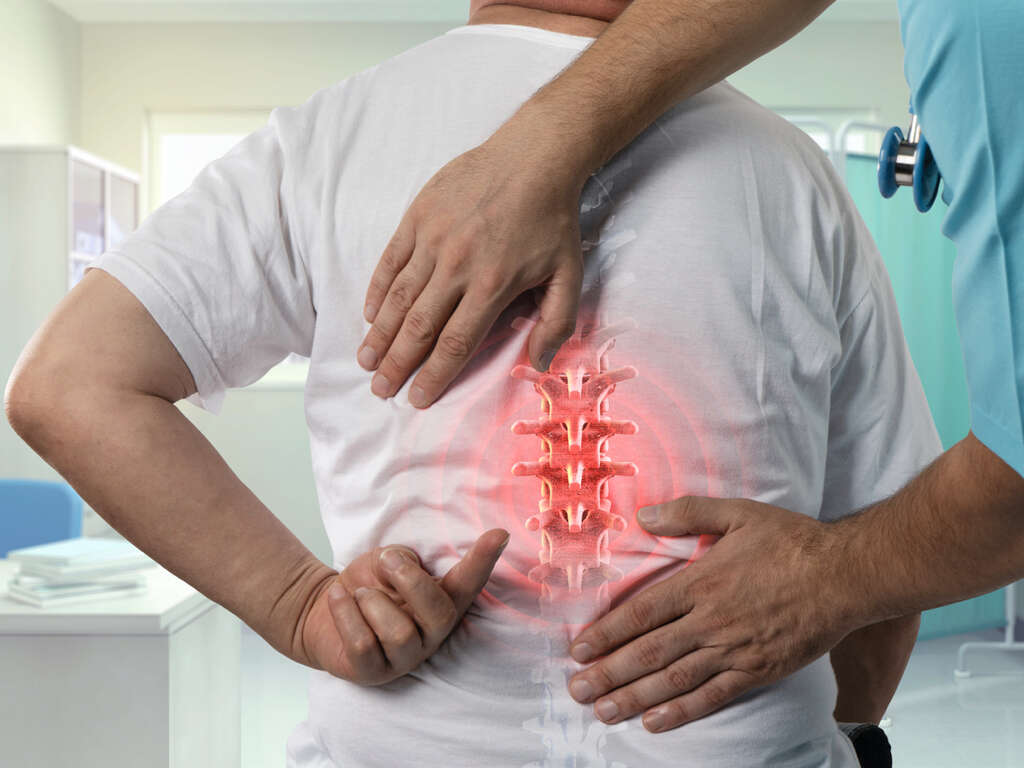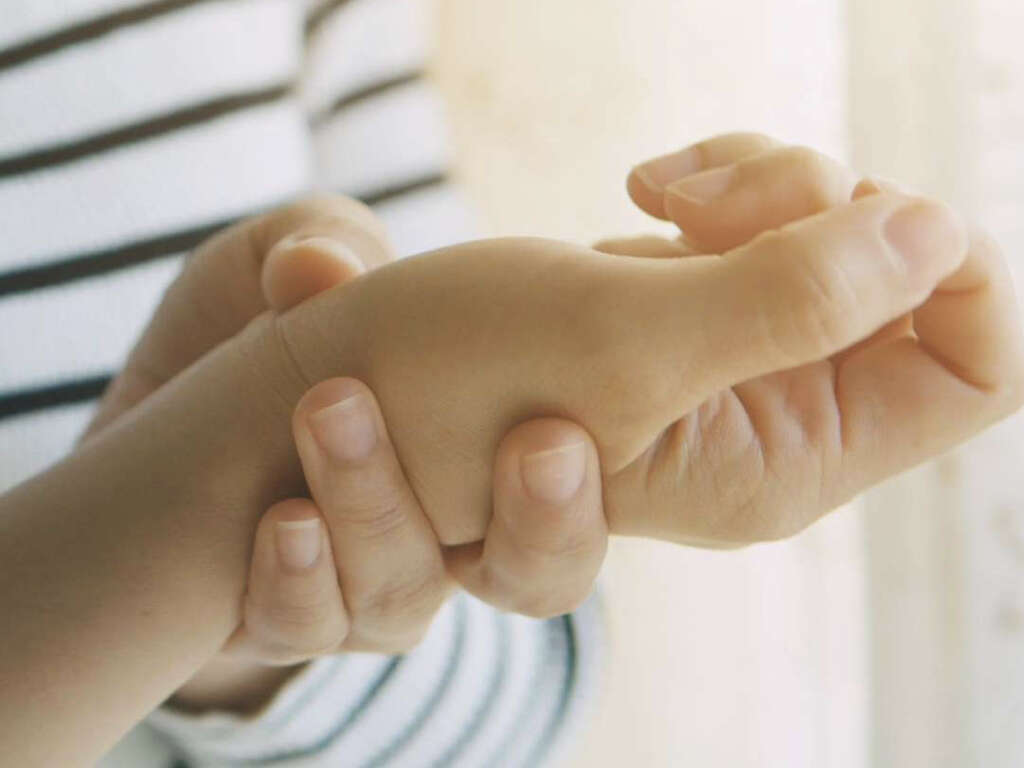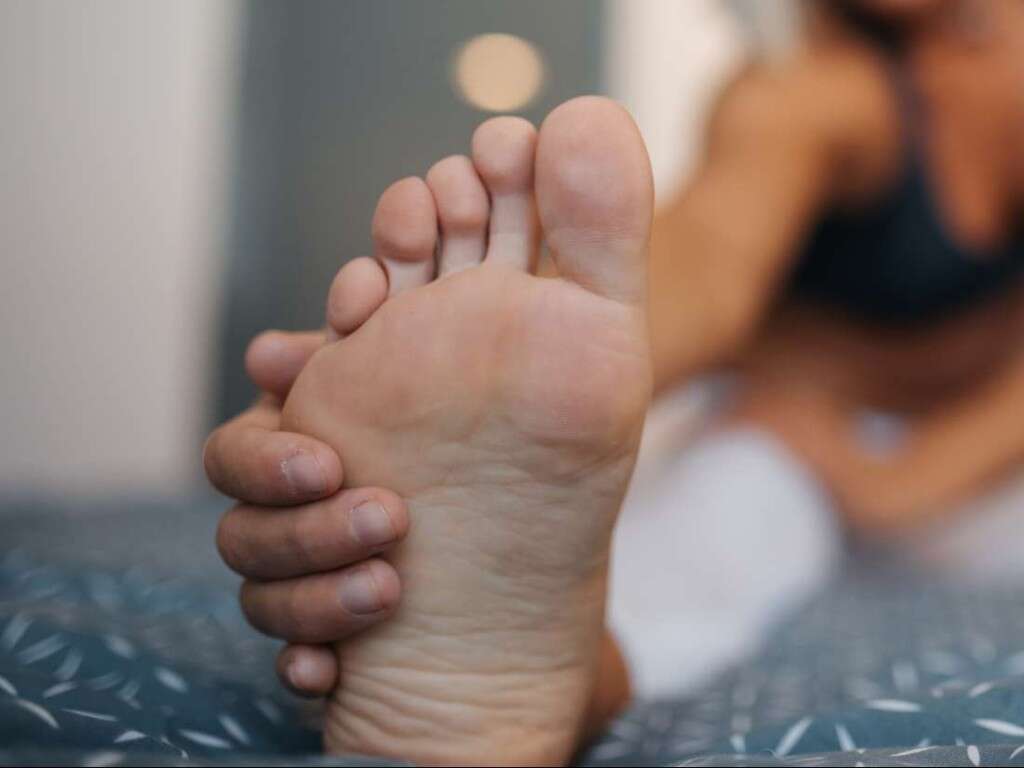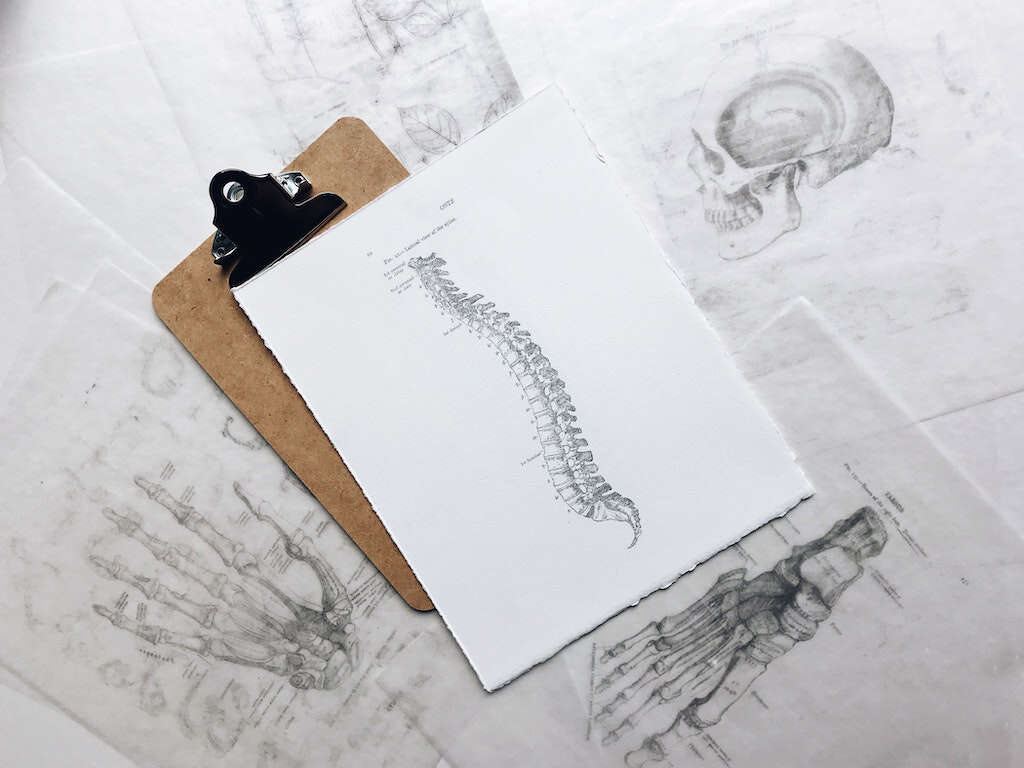10 Sciatica Symptoms
Sciatica is not a single condition, but rather a term given to sensations caused by an issue with the sciatic nerve. The nerve travels from the spine down to the toes, so it is possible for symptoms to be experienced throughout the lower body. Among the most common causes for sciatica is a herniated disc, although there are other causes for the symptoms.
Usually, the cause of sciatica will heal itself naturally in a matter of weeks. While this is happening, painkillers are often prescribed to help reduce symptoms. Sometimes, though, symptoms can be an indicator of something potentially very severe and immediate medical assistance should be sought. If you are unsure, you should always seek the help of a medical expert.
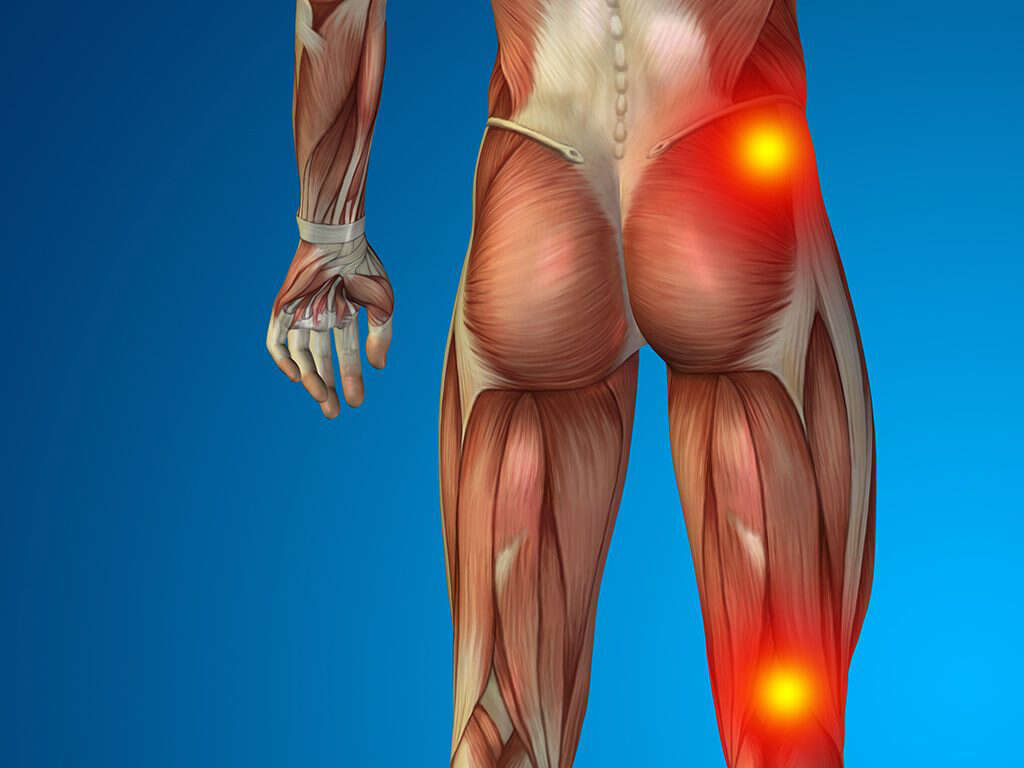
Symptom #1: Hip Pain
Among the most common of all symptoms is pain in the hips. People that suffer from this pain will often have the symptoms for quite some time before the cause is diagnosed. Quite often, it is blamed on other causes until a thorough examination is performed.
It tends to be inflammation around the L4 or L5 vertebrae that is the cause for hip pain. Such inflammation is generally quite deep, which can make it difficult to treat. Some sufferers find that mild yoga can help to reduce the pain, while rotating the hips and bending the back can also be beneficial.
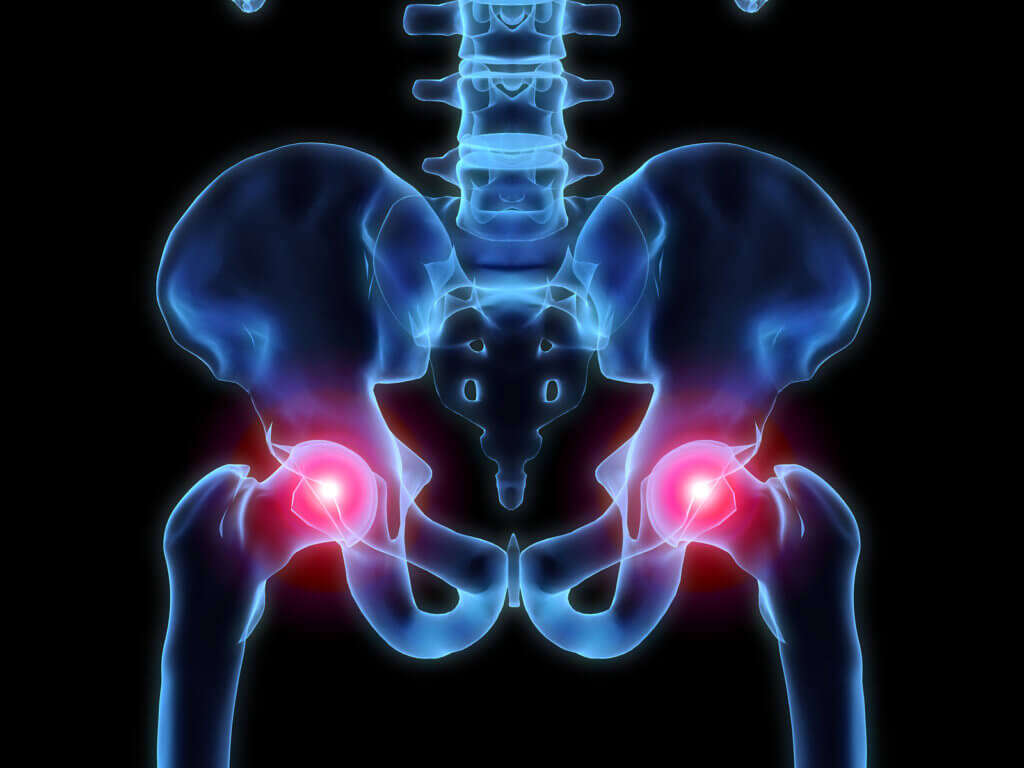
Symptom #2: Lower Back Pain
Sciatica can be accompanied by lower back pain, but this is not always the case. The pain experienced tends to vary and can be anything from a tingling sensation, to a severe stabbing pain. The pain can also tend to lessen or worsen according to the position you are sitting in. This type of sciatica is usually caused by a herniated disc placing pressure on nerve roots.
Treatment will usually involve prescribing painkillers to help relieve the symptoms. The cause will usually heal itself naturally, so it is mostly a matter of making the sufferer comfortable until healing is completed. A herniated disc accounts for more than 90% of sciatica affecting the lower back. Physical therapy is a good option for help with a herniated disc.

Symptom #3: Difficulty Running
Running isn’t for everybody, but for some people it can be very uncomfortable indeed. If you are experiencing pain or numbness in your legs and buttocks when running, the problem could well be sciatica.
Usually, this is caused by a herniated disc placing pressure on the nerve, but this is not always the case. Another cause that is more common in athletes is piriformis syndrome. This time, the pain is caused by the piriformis muscle placing pressure against the nerve. The symptoms of both can be identical, sometimes making it difficult to come to the correct diagnosis. Effective treatment will likely be different for each cause, meaning that getting the correct diagnosis is important.

Symptom #4: Rear Leg Pain
The sciatic nerve runs all the way down the leg, so it should come as no surprise that you will find pain in that part of the body, particularly at the back of the leg. The usual cause for these specific symptoms is a herniated disc placing pressure on the lumbar roots. The pain is usually described as a sharp pain, may worsen with certain movements, and may be relieved with other movements.
The cause will often clear up naturally, and treatment usually involves the use of painkillers to help relieve symptoms. Physical Therapy should always be an option for back pain and sciatica symptoms. Surgery may be required.

Symptom #5: Pain When Leg Raised
One of the main symptoms of sciatica is also a common method of getting a diagnosis. When the leg is stretched, then the nerve is also stretched. Usually this is no problem but, when the nerve is trapped, it cannot stretch as needed. This causes pain which is a clear indicator of sciatica.
This method of diagnosis involves laying the patient on their back, and then lifting their leg while keeping it straight. This can cause pain that is a clear indicator if sciatica and enables the examiner to give a diagnosis. It is a simple method that can be performed at home with a friend or family member. Regardless of self diagnosis, however, it is always advisable to see a medical professional.

Symptom #6: Burning Leg
Our nerves are used to relay a wide range of different messages to the brain. When something is not right, the messages can become confused, and you can feel sensations that have no apparent cause. This includes the sensation of being on fire, and there’s a good chance you have sciatica should you experience the sensation in your legs.
The symptoms are usually short-lived and can often be relieved by laying down for a while. Moving the legs will often only worsen the symptoms. In some cases, the degree of discomfort can be quite severe. If you do experience such sensations in your leg or any part of your body, you should make an appointment with a medical professional.
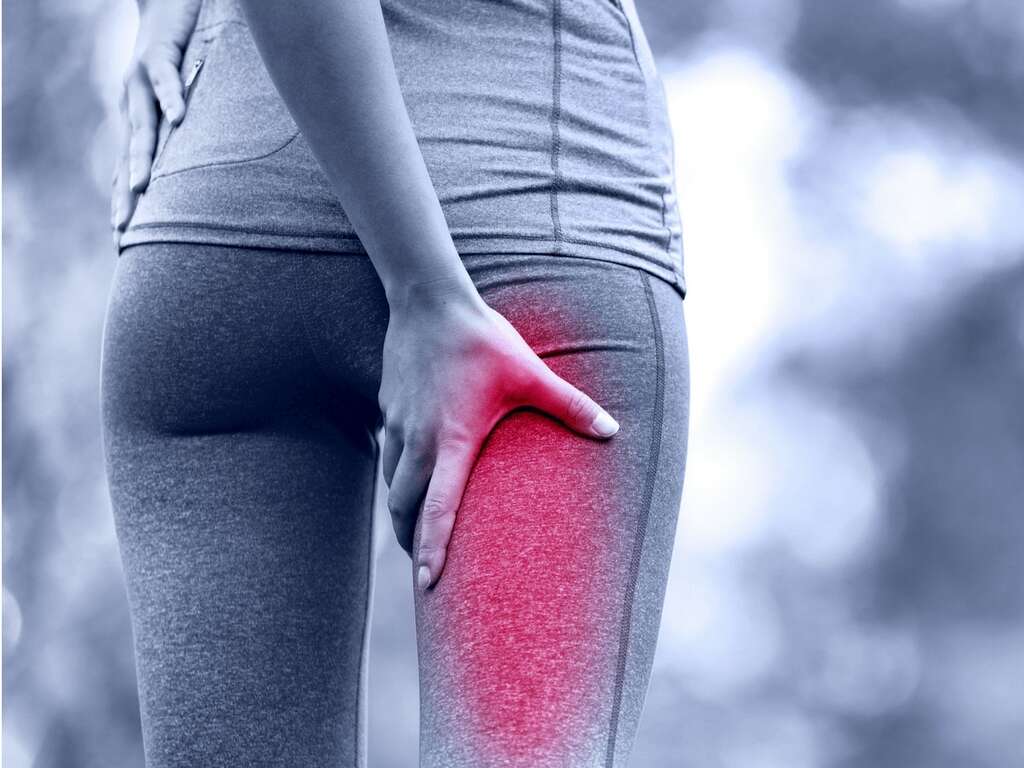
Symptom #7: Poor Bowel & Bladder Control
Occasionally, one unfortunate symptom of sciatica is a loss of control of the bladder and/or the bowels. These symptoms can develop gradually over time or can arrive quite suddenly. While these symptoms can obviously result in some very embarrassing situations, they are also an indicator of a very serious problem.
If you do suffer from a loss of control of your bowels and/or your bladder, you should seek emergency medical assistance as these symptoms are an indicator of cauda equina syndrome.

Symptom #8: Weak Knees
In addition to pain, numbness and burning sensations, sciatica can also manifest itself with weakness. Sufferers can sometimes feel as though they just don’t have the strength to walk, and just standing up can be a significant challenge. It can affect the whole leg but is usually found in only one leg. It doesn’t cause a complete loss of movement but is enough to inhibit mobility significantly.
While people are often likely to seek medical help if they are experiencing pain, they are likely to be reluctant to do so with symptoms of weakness. Weakness, however, is a more alarming symptom medically so you should waste no time in seeking help when experiencing such symptoms.
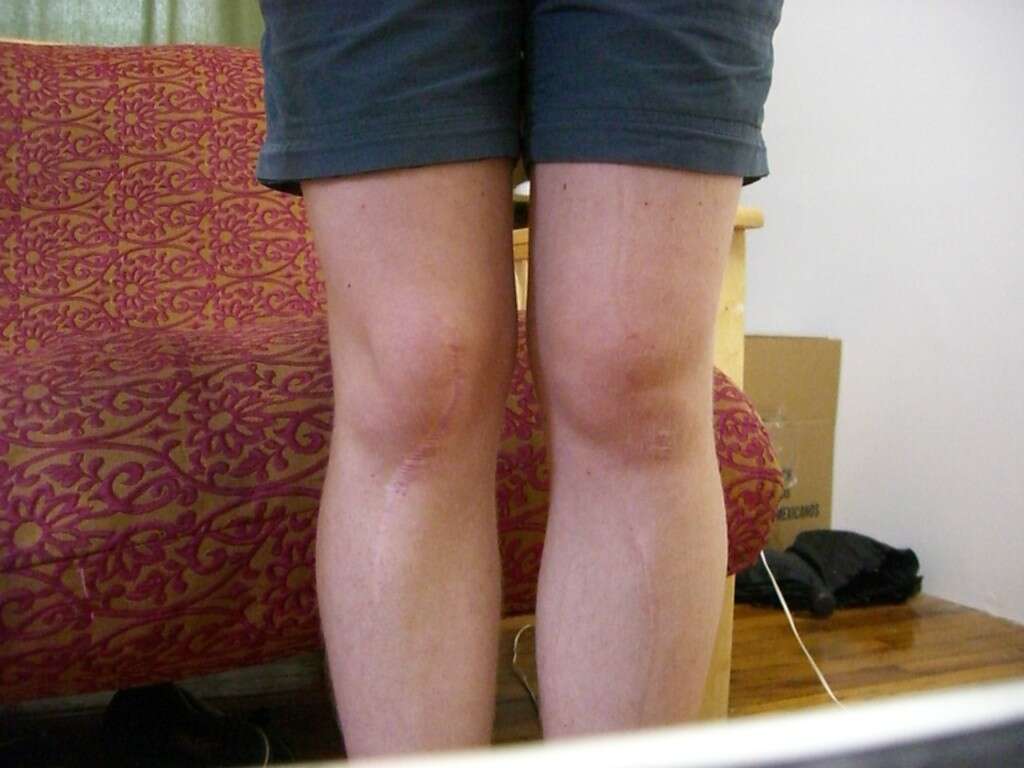
Symptom #9: Pins and Needles
We’ve all experienced pins and needles at some point, often when we have been sitting or laying in the same position for a while. Pins and needles is caused by the flow of blood being restricted, or by nerves being placed under pressure. The symptoms can range from being mildly unpleasant, to very uncomfortable indeed.
Sciatica is often caused by the sciatica nerve being placed under pressure, so pins and needles is quite a common symptom. If you do suffer from pins and needles, it may well just be down to sitting in an awkward position for too long. If you are unsure, you should visit a doctor, especially if you are experiencing other symptoms.

Symptom #10: Swelling
While swelling is not a symptom of sciatica, it can still be an indicator that you are suffering from sciatica, especially if you are suffering from other symptoms. Swelling, in many cases, can actually be the cause of sciatica meaning that if you have swelling, you have sciatica. The swelling will usually, but not always, be found around the lower spine.
The swelling could be down to a number of factors, ranging from a mild trauma to a fracture. The potential for a fractured vertebra is obviously something to take very seriously, so emergency medical assistance should be sought straight away. In many cases, though, the swelling is not a result of a severe injury and will heal itself naturally in time.




